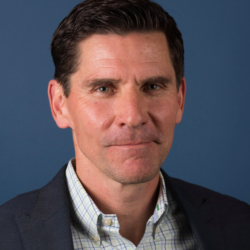California Fires Don’t Justify an Energy Industry Shakedown
A bill that would allow state residents to sue private companies for restitution is only the latest front in California’s ongoing war on oil producers.
L.A.’s wildfires are still burning, but that hasn’t stopped anyone with eyeballs from identifying the likely causes: America’s costliest natural disaster isn’t “natural,” really, or not entirely. It is, in fact, the product of a perfect storm — of meteorological phenomena that stretch back millions of years; bad policies that have turned the state’s forests and scrublands into kindling; and bungling politicians, their appointees, and their allies in the environmental movement.
But if you’re California State Senator Scott Wiener, you blame oil companies.
This week, Wiener introduced Senate Bill 222. His Affordable Insurance and Climate Recovery Act would incentivize “victims of major climate disasters” to “seek damages from fossil fuel companies in court.”
“Major fossil fuel companies intentionally misled the public for decades about the impacts of their products, and now Californians are paying the price with devastating wildfires, mud slides, sea level rise, and skyrocketing insurance costs,” Wiener said. “When climate disasters strike, SB 222 allows homeowners and businesses to recover damages from the fossil fuel companies responsible for the disasters.”
In fact, the bill’s real magic — its political sophistication — is a bank shot: Wiener hopes to bail out property insurers already damaged by the state’s dysfunctional insurance market by pitting them against the oil industry.
The insurance industry will indeed be on the hook for this latest catastrophe. It has estimated its own post-wildfire losses at about $35 billion; actual damage estimates run as much as ten times that amount. But the real problems with California’s insurers go back to 1988, when California voters approved a statewide proposition to create the elected office of the California insurance commissioner. In the decades since, commissioners have managed the insurance industry in the style of Soviet-era apparatchiks. In capping insurance premiums, Ricardo Lara, the state’s current insurance commissioner, has barred insurers from pricing in the costs of reinsurance. He has prohibited them from using their own models to predict risk. The result: California insurers pay out $1.09 for every $1 in revenue from premiums.
Many insurers simply stopped writing new business; others actually left the state altogether. Lara’s own fund, called the Fair Access to Insurance Requirements Plan (FAIR), was supposed to step into the breach, but the air has gone out of that balloon: As of its latest report, in September, FAIR has just $700 million in cash on hand against exposure of about $458 billion — three times its exposure in 2020.
Wiener’s proposal would incentivize those insurers (and would require the state’s benighted FAIR Plan) to deploy their legal power in a death match with oil companies. His bill would aid insurers by simply declaring unprovable facts to be true — by establishing as a matter of law the environmentalists’ claim that oil and gas companies contributed materially to the wildfires that cause so much damage in California.
There are massive logical gaps in the senator’s bill. In a press release announcing it, Wiener claims that “from 2018–2022, California had the largest number of average acres burned annually and the most residences destroyed due to wildfires of any state within the United States.”
That doesn’t mean what Wiener thinks it means — which is that 49 other states have somehow inexplicably escaped the worst effects of changes in the earth’s climate. Wiener’s claim actually proves there’s something unique about California. It might be that the real source of the state’s problems is its voters, the people who elect politicians who promote absurd climate theories as an excuse for the government incompetence that produces wildfires and floods — politicians like Scott Wiener.
Wiener’s bill is only the latest front in California’s ongoing war on oil producers. Stomping through the ashes of a 2022 wildfire, the governor announced a bold path forward: Because oil companies were destroying the earth’s climate, he would eliminate all sales of new gasoline-powered cars by 2035. He signed legislation to ban new oil and gas wells within 3,200 feet of any occupied structure — a restriction likely to kill oil production in the state. The state’s Air Resources Board, whose directors Newsom appoints, announced it would ban natural-gas appliances in new homes by 2030. One year later, California Attorney General Rob Bonta sued ExxonMobil, Shell, Chevron, ConocoPhillips, and BP for allegedly causing climate-change-related damages and deceiving the public.
Offering a painful lesson in unintended but perfectly predictable consequences, those initiatives and others like them have sparked a run-up in gasoline prices in the state. One California regulation requires oil refiners to produce unique seasonal fuel blends for sale in the state. But annually switching their refining systems to deliver those state-mandated blends causes temporary shortages — and those shortages, of course, produce transient price hikes in the already high price of fuel. As with their thinking about the origins of wildfires, Newsom, Bonta, Wiener and their allies in the legislature know whom to blame for what they call this “mystery surcharge”: They allege Big Oil is engaged in elaborate price-fixing.
So, in October, determined to stop the price spikes, Newsom called state lawmakers back to the capitol for an emergency session that would consider two solutions: the creation of an official price-gouging “investigation unit” and a new requirement that oil refiners store massive inventories of gasoline as a hedge against planned and even unplanned reductions in production. Ignoring Republicans who said the measures would actually raise the price of gasoline, the Democratic supermajority passed both bills to huzzahs of self-congratulation.
Three days after that special session, ConocoPhillips closed its century-old, iconic refinery near the Port of Los Angeles. Days after that, Newsom’s Air Resources Board said it would impose new carbon limits on gasoline sold in the state, raising the price per gallon by as much as 65 cents by April.
By that time, Chevron — founded in the state in the 1870s and one of the five oil companies targeted in California’s 2023 lawsuit — had already closed its global headquarters just outside San Francisco and moved to Houston. Announcing the company’s exit in August, Chevron CEO Mike Wirth said, “We believe California has a number of policies that raise costs, that hurt consumers, that discourage investment and ultimately we think that’s not good for the economy in California and for consumers.”
At press time, California’s gas prices are $4.45 per gallon, the highest in the nation but for Hawaii, a state that is compelled by geology and geography to import every eye dropper of oil.
California’s war on oil producers doesn’t end with their production of gasoline or natural gas. In September, Bonta sued ExxonMobil for the second time in a year. This time, the AG claimed the company’s plastics recycling programs are mere greenwashing — part of a public relations campaign to mask the environmental horror of oil.
Months passed after Bonta filed that lawsuit — months during which Newsom signed those new regulations to punish oil companies — ConocoPhillips closed its Southern California refinery, and the state Air Resources Board announced its stricter demands for low-carbon fuels.
And then, ExxonMobil struck back. In a January 6 lawsuit, the company accused California officials of running a “defamatory campaign” of lawsuits and public statements “to harm ExxonMobil’s business, disparage the oil and gas industry, and increase their own donations.”
Filed in the Eastern District of Texas just hours before wildfires burned through Los Angeles, ExxonMobil’s bombshell lawsuit didn’t get much coverage in California. Many in the major media were understandably distracted by signs of the End Times unfolding in Los Angeles — palm trees burning like tiki torches, cars abandoned in ghostly pileups, wide-eyed horses running terrified in the streets, entire neighborhoods turned to ash in hours.
California’s war on oil in support of foreign actors is not merely a story of Attorney General Rob Bonta, of course. It’s increasingly clear that Governor Newsom himself has played the key role in California’s ongoing war against oil. Always aiming for the White House, Newsom’s political strategy has been to pose as a powerful global player prepared to take on Really Big Issues. Staring into wildfires, he has blamed oil companies and called for an all-electric future — not just for California but for the planet. He flew to Beijing to “negotiate” a climate deal with Chinese President Xi Jinping. He dispatched emissaries to global climate conferences convened by Xi. He has, in other words, put California’s people and its future firmly in the hands of China, the world’s leading source of carbon emissions and its leading processor of the rare earth metals essential to battery technology.
Newsom’s payback came in December. In what looks like a response to Donald Trump’s threat to impose tariffs on Chinese imports, China declared it would stop exporting rare earth metals to the U.S. In that moment, everything about Newsom seemed harshly illuminated. Then came the brilliant glow of deadly wildfires, stoked to life by policies advanced by California politicians, especially Newsom himself.
The ExxonMobil lawsuit wasn’t the only thing momentarily lost in the round-the-clock coverage of the L.A. fires. On January 16, in Moss Landing, a small town on the state’s rural central coast, a battery warehouse that stores electricity for Pacific Gas and Electric exploded. It was only the latest, but, a local reporter observed, “by far the most destructive of the four battery fires that have afflicted the small coastal town since it became a linchpin in California’s clean energy overhaul.”
Battery fires are hard to extinguish — containment and biblical patience are generally the best tactics — and they are remarkably dangerous as they burn. Today, in a likely harbinger of future news, the headline of San Jose’s Mercury News reads, “Moss Landing battery fire: Unusually high concentrations of toxic metals found in wetlands near plant.”
Environmentalists who fight such oil producers as ExxonMobil don’t seem alarmed. But one day, after they’ve killed oil, they’ll turn their attention to crushing “clean energy.” America’s enemies will happily fund that war, too.
This article was originally published by NRO.
Will Swaim is president of the California Policy Center and co-host with David Bahnsen of National Review’s “Radio Free California” podcast.

